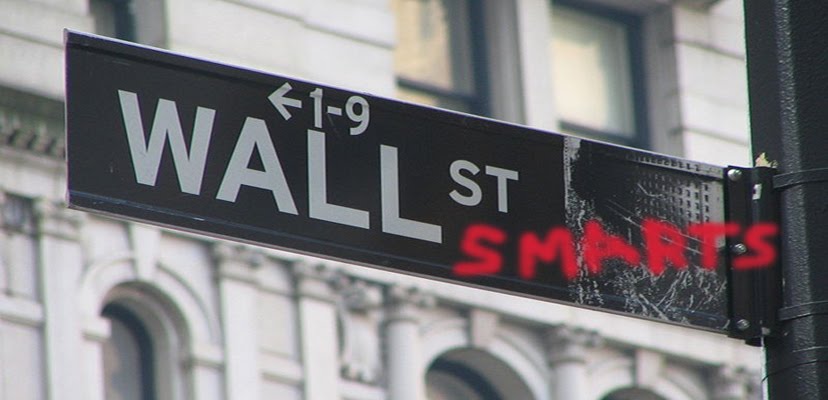WALL STREET SMARTS, THE BLOG, IS NOW WALL STREET SMARTS, THE BOOK. FULLY EDITED AND REVISED WITH NEW MATERIAL ON AMAZON
Any time you mix people, money and uncertain outcomes (sounds like Wall Street, doesn't it?), there will always be a certain number of those participants who look for the easy (illegal) way to make money. Bradbury Thurlow admitted that there were instances of Wall Street dishonesty when he touched on market shenanigans in his book, Rediscovering the Wheel: Contrary Thinking & Investment Strategy, as follows:
In the stock market practically everybody with any trading experience will feel he has been fleeced, not once but repeatedly. This does not mean that the market is filled with or run by unscrupulous people -- although there are always a few of those around waiting to take us in.*
Fred Schwed, Jr. also discussed the issue of fraud on Wall Street in his book, Where Are the Customers' Yachts? or A Good Hard Look At Wall Street. He felt that the public's widely held feeling that their losses were the result of dishonesty were overblown and, to a certain extent, self-serving. He wrote the following about the public's feelings about Wall Street:
The public feels that Wall Streeters are not dunces at all; that they are crooks and scoundrels and very clever ones at that; that they sell for millions what they know is worthless; in short, that they are villains, not children.
The burnt customer certainly prefers to believe that he has been robbed rather than that he has been a fool on the advice of fools. Even Wall Street men themselves tend to encourage the idea.
The crookedness of Wall Street is in my opinion an overrated phenomenon. The hearts of Wall Street men are not more or less black than the hearts of the men in the sausage-cover game. There is probably the same percentage of malpractice, but the Wall Street depredations are more spectacular. They involve vastly greater sums, and they make more interesting reading. Best of all, they suggest to the public an excuse for the public's own folly.**
Both men acknowledged the fact that fraud is, indeed, practiced on Wall Street; however, they felt that much larger losses were incurred much more frequently by thoughtless, emotional investing by the public. Schwed made the following comments concerning the Securities & Exchange Commission, established after the 1929 market crash and subsequent depression in the USA:
Wall Street needed the S.E.C. just like baseball after 1919 needed Commissioner Landis. But people who are interested in baseball are more realistic than people interested in Wall Street. The fans did not expect Judge Landis would do more for the game than keep it reasonably honest. They did not expect him to improve the quality of the fielding and hitting. Nevertheless, a considerable part of the public seems to be expecting the S.E.C. will make speculation and investment safer.
These hopeful individuals are reminiscent of the benevolent soul who said at the beginning of the poker game, "Now, boys, if we all play carefully we can all win a little." **
In the next blog, we will look at a classic form of market manipulation, what would be frowned upon by the securities regulators today, but was fairly common in the 1920s.
* Excerpt from Rediscovering the Wheel: Contrary Thinking & Investment Strategy, Bradbury K. Thurlow, copyright ©1981, published by Fraser Publishing Company, is used by permission of the current copyright holder.
**Excerpts from Where Are the Customer's Yachts? or A Good Hard Look At Wall Street, Fred Schwed, Jr., copyright © 1940, republished by John Wiley & Sons, Inc, pages 195-196 & 211-212
Comments are always welcome.

No comments:
Post a Comment